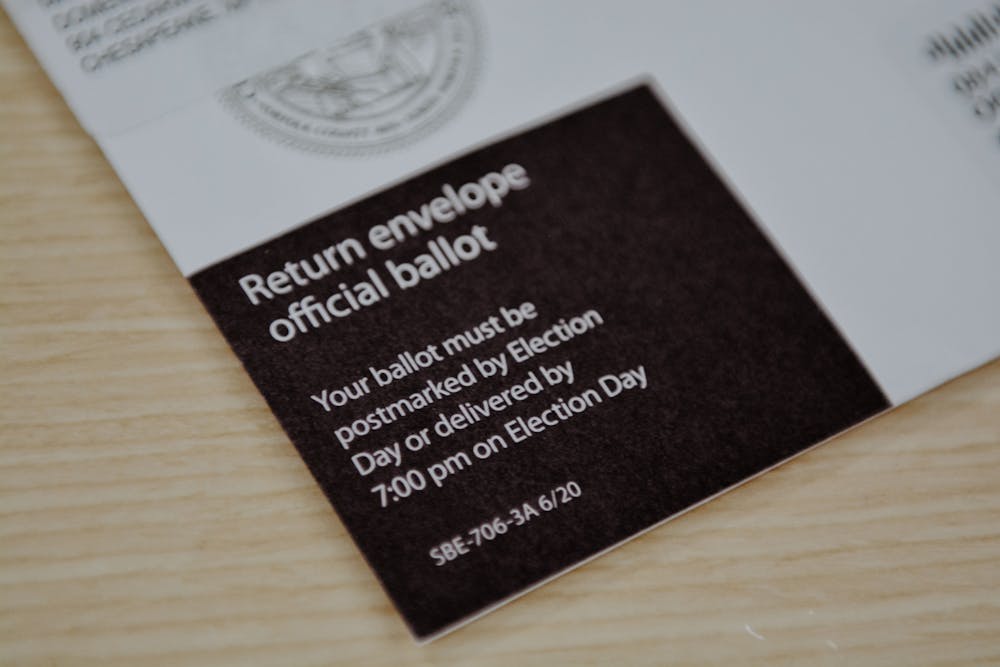We are days away from one of Virginia’s most crucial elections of the year. No, it’s not for president, nor for governor — in less than two weeks, Albemarle County and Charlottesville will vote on the members of the local school board. Unfortunately, voters do not tend to view these elections as important — only 5 to 10 percent of Americans even show up for school board elections, compromising the degree of voter input in these crucial elections.
In an age of attempts by conservatives to control public education, the school board has become a hugely important electoral battlefield, but one which technically remains nonpartisan. Party identification must be implemented on school board ballots to transparently identify candidates and allow voters to weigh their options. The time, effort and energy it takes voters to clearly understand where school board candidates stand on hot-button issues dissuades many voters from showing up for these critical elections. The issues at stake are simply too important for voters to not have a clear sense of where candidates stand — and, for better or for worse, clear party labels make a candidate’s stance on major policy issues abundantly clear.
There is legitimate concern that this is not a resolution — that creating these partisan titles fans the book-burning flames already present in these heated elections. However, studies show that keeping local elections nonpartisan significantly lowers the turnout due to the fact that people do not know what or who they are voting for. An easy way to encourage voters then is by adding a D or an R next to a candidate’s name. And while there are more than a million arguments why people should vote on policy rather than party, our system is not geared that way yet — and this ideological polarization will not go away soon. We need to start dealing within the confines of this highly partisan educational situation instead of embracing pipe dreams of nonpartisanship. This starts with ballot changes enacted by the Virginia Department of Elections.
Perhaps at one point, school board elections could appropriately claim the mantle of nonpartisanship. Nowadays, however, support for teachers unions or merit-based pay are partisan policies. What were once fairly straightforward educational policy issues that drew little backlash from either side have grown polarized in tandem with the polarization of the overall political system. COVID-19 and the shutdown of public schools during the pandemic in 2020 ignited parental interest — and hostility — towards the public school system and has fundamentally exacerbated partisanship in education. The demands parents have placed on the public school system have only increased post-pandemic, albeit in new forms.
What began as communal protests against Centers for Disease Control and Prevention guidelines quickly morphed into the creation of parental rights activist groups like the ultra-conservative Moms for Liberty who have moved from anti-masking rhetoric to calls for extensive library bans on LGBTQ+ books and policies that discriminate against transgender youth. Now, with these groups leading the way, hundreds of individuals with similarly-problematic ideas have been galvanized to run for school boards. Despite their clear partisan affiliations, school board candidates on either side of the spectrum can claim the mantle of nonpartisanship while advancing partisan policies. Their “nonpartisanship” shields them from clearly communicating their unpopular affiliations and advances the now antiquated idea that education exists outside the realm of partisan politics.
Take a local race for a seat on the school board, for example. Allison Spillman, candidate for the Albemarle County Public School Board, clearly outlines key issues that she hopes to address — such as inclusivity, collective bargaining and decreasing the student to provider ratio in schools. Spillman’s opponent Meg Bryce, however, shrouds her conservative policy preferences underneath vague terms like “parental involvement” and “fiscal responsibility.” Many voters simply will not place buzz words like “parental involvement” in their appropriate political contexts. This reality allows Bryce to distance herself from the wildly unpopular political agenda of groups like Moms for Liberty without having to actually take a stance against any of their problematic positions. In short, Bryce can attempt to play both sides. While party identification on school board ballots is not a fix-all, it would, at the very least, force candidates like Bryce to claim a mantle that both clarifies their policies and communicates their very real partisan affiliations.
Like it or not, party-line voting is the primary political strategy of most Americans — the average American is traditionally informed on the policy and platform differences between Democrats and Republicans, whether through local news or presidential candidates. Most don’t need websites or an hour of online research to locate exactly what political contrasts matter to them in any given partisan election. On top of this, aligning with a party rather than independently provides a candidate with rhetorical and financial strengths, empowering their electoral chances. The two parties function as an accessible platform in and of themselves. For these reasons, when the ability to vote by party is stripped from voters, it is simply not surprising that they just do not show up for elections.
Adding party labels to school board elections is a significant change to make, both in the realm of our education system and local politics, but it is a necessary one. The school board is no longer a place of nonpartisan discussion, and its branding should reflect that. These activist groups aiming at our school boards prove hazardous to our children, and the structures which permit them to claim nonpartisanship are a threat to the democratic process of our local elections. The only answer is to rip off their façade of nonpartisanship, force candidates to stand behind bigoted, book-banning parties and let the populace decide for itself.
Scarlett Sullivan is a Viewpoint Writer who writes about Politics for The Cavalier Daily. She can be reached at opinion@cavalierdaily.com.
The opinions expressed in this column are not necessarily those of The Cavalier Daily. Columns represent the views of the authors alone.







